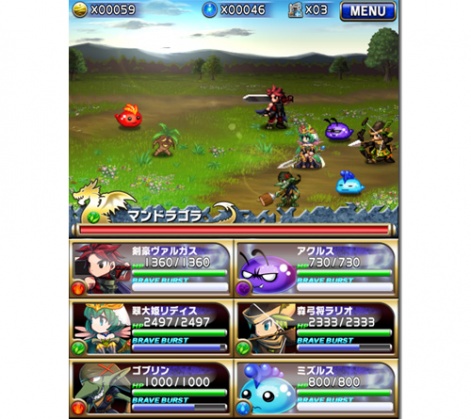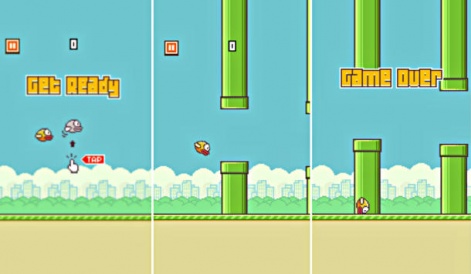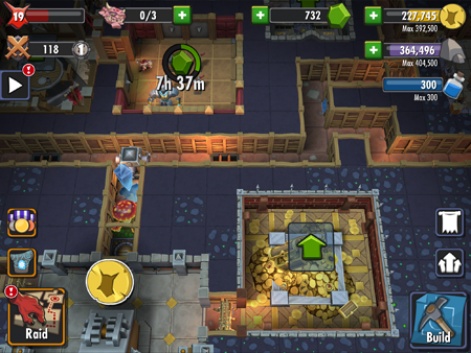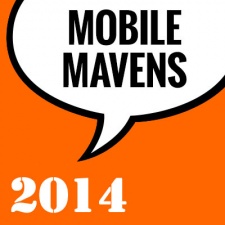It is now almost the end of December, and so our thoughts must turn Janus-like to the ending of one year and the starting of another.
So in the first part of what will be a three part question, we asked our Mobile Mavens
What was the most significant event in the world of mobile gaming during 2014?

Adam has been in the mobile game industry since 2007, creating games independently. He's since grown into a full 50+ person studio manager.
Recently he's taken a position at Wooga in Berlin to sharpen his design skills and work with the world's best to create amazing, well-crafted products onto the mobile marketplace.
Just to list them... I think these are the big events from 2014 : (Please fill free to add more!)
- Flappy Bird's climb and fall
- Hearthstone climbs up the charts and gives us hope that great design can win
- Zynga acquires Natural Motion
- Microsoft acquires Mojang
- King's IPO continues to show gaming's still a hit-driven market and not even King has a fully magic formula
- Kim Kardashian was the only game to reach Top 10 sustainably this year that was not made by Supercell or King (or was casino)
- Apple iWatch/wearables are coming in 2015
- Amazon buys Twitch, stressing the importance of making gameplay that is worth streaming & sharing
- Heroes Charge and Summoners War show us that eastern developers can make it big in the west (just not vice versa)
- Vainglory is the first big entry on the mobile MOBA (a MOMOBA haha) but shows worrying initial signs
I would argue that the biggest event of 2014 was the continuing static top grossing charts. Kim Kardashian was seemingly the only new top 10 grossing game this year. The mobile marketplace has matured at an incredibly fast rate.
It's a winner takes all market where the top performers dominate the traffic and the money.
My hope is that 2015 sees greater innovation, but I guess I'll wait for part 2.

Kyu has been at GAMEVIL since the beginning in 2000 and has constantly played a key role in the evolution of Korean mobile gaming, continuously introducing innovation to the world.
Kyu graduated from Seoul National University with a BS in Physics and is currently on the board of advisory at GDC Mobile.
To add to your list ... looking back I think that the biggest event of 2014 is definitely the significant growth of Asia.
The worldwide top grossing companies have been dominant with Asian companies this year, which is due to the growth of markets like China, Japan, Korea, and Taiwan etc.
I think it's becoming more crucial for companies to have a legit strategy for these territories.

In 2002 Dmitry Terekhin founded Moscow-based Nekki with a focus on creating original, quality gaming content for mobile and social platforms.
The company has released the popular games Shadow Fight, Shadow Fight 2, Vector, and others, earning more than 160 million installs to date.
Dmitry graduated from the Moscow Engineering and Physics Institute with a degree in mathematics and systematic programming, and received his MBA from the Skolkovo School of Management in 2014.
The gold rush is over.Dmitry Terekhin
I think that the significant event of 2014 was Rovio laying off 130 staff and admitting it has problems to continue growth.
King faces a similar problem and needs to find a next big hit after people will get bored of Candy Crush Saga.
This shows that mobile games market gets mature and the gold rush is over.
I believe that Clash of Clones-rush will also finish soon and in 2015 more developers will focus on technical or gameplay innovation and creating new IP.
The most significant event in mobile gaming in 2014 was the end of hype about mobile gaming and the realization that very few games can succeed in this market.

I also view the ascendancy of brands, for example the Kim Kardashian game, as a natural consequence of a non-curated app store.
As pointed out, in the top grossing charts, the top earning title positions are pretty static.

Jon Hare is one of Europe's best known creative directors and game designers with over 10 international number one games to his name and nearly 30 years of experience in the games industry.
Jon co-founded and managed the legendary 1980/90s development company Sensible Software, creating games such as Sensible Soccer, Cannon Fodder and Wizball to great critical acclaim and commercial success and has also worked in senior posts in two of the UK's biggest games developer/publishers Codemasters and Jagex.
Since 1999 Jon has been one of the top game design and business development consultants in Europe working for many different publishing and development clients.
His own new company Tower Studios specializes in developing, publishing and licensing games on mobile and digital formats enjoying recent international success with the release of Speedball 2 Evolution and Word Explorer across numerous mobile and digital platforms.
Jon has also been a full BAFTA member for over 10 years, serving on the BAFTA Games Committee and is a regular Chairman of juries for BAFTA Games awards, as well as acting in a mentor capacity for both BAFTA and NESTA.
This year more than any proves that on mobile markets you cannot build a developer brand, you can only build a game brand.
It is totally contrary to the normal adage for games makers, musicians, authors and film makers that "You are only as good as your latest hit".
In the mobile market, the truth for developers is "You are not even as good as your latest hit".
Jon is right. The 'brands' that matter are game properties, not publishers or authors.
The Kardashian game was a re-skin of an existing title. With all the 'noise' having her brand is what made the difference here.
It reminds me of the computer game business in the late 1980s, when we went for movie and sports licenses to rise above the fray.
So where to start? Let's check out the charts – boring like hell.
Most titles in the Top 20 were there last year and you can only go in there by buying up – quality is important to keep you there but quality alone doesn't work anymore. Several publishers suffer from the huge competition in the market and how many copies of Clash of Clan do you want to play?
For me this year was a big investment in the future of our studio.
How many copies of Clash of Clan do you want to play?Christopher Kassulke
We are no longer develop just mobile games! We still develop "mobile-first" on the three major platforms (iOS, Android and WP8) but beyond mobile is getting more and more important for HandyGames, so as Jon already mentioned you develop game IPs (and perhaps also a little bit of your studio IP but that's extreme hard as mentioned).
So the beyond mobile platform as Android TV, wearables, PC, and consoles are the key for us. Those are all new markets with new challenges.
It was also quite interesting to see the huge M&A activities and the IPO of King this year. I am very sure more will come very soon as everyone is checking out game IPs, install bases, talents, etc.
For me, 2014 was the year that the thousandth cut killed: I almost never touch my consoles and I enjoy almost all of my gaming entertainment on my iPhone.
An inflection point has been reached, not with a bang, but with a 6 Plus.
Really, though, the most-significant development in mobile gaming - and really, the most-significant achievement since human beings wiped out all of the neanderthals - is NBA All Net for iOS, which is just like Big Win Basketball, but has real NBA teams and players!
I'm just kidding: Human beings didn't wipe out all of the neanderthals ... I'm still here.

A games programmer before joining Sony’s early PlayStation team in 1994, he then founded developer Pure Entertainment, which IPO’d and launched a free-to-play online gaming service way back in 1999.
He was also a director of pioneering motion gaming startup In2Games, which was sold to a US group in 2008.
Along the way, he’s been a corporate VP, troubleshooter, and non-exec to a variety of companies and investors in and around the games sector.
Harry was European CEO of Marvelous AQL, a Japanese developer and publisher of social, mobile and console games, known for console games like No More Heroes and Harvest Moon, but now highly successful in the free-to-play mobile and web space in Japan and Asia.
Harry is CEO of Magicave.
So many great points already made here, so I'll add one from the Japanese, rather than western, market. Japan continues to be the most lucrative market in terms of monetization, but remains relatively insular, with many successful Japanese games not being released abroad, and few western games hitting the charts.
As a result, some of the changes there are not always evident to us in the west.
The biggest change I've seen in the Japanese market is the decline in pure collectible card games and the rise of games with deeper, RPG and progression elements, along with more tactile gameplay.

While collection/gacha/fusion remains at the heart of most successful titles, the likes of GungHo's Puzzle and Dragons, Mixi's Monster Strike and our own Logres of Swords and Sorcery (originally a PC browser MMO, now very strong on mobile) shows Japanese consumers and developers seeking out more sophisticated experiences than the featurephone-style games they were playing a year ago.
We've seen titles like Brave Frontier do well in the west, along with the great performance of CCGs with western (e.g. Marvel) branding. We've also seen Candy Crush and Clash of Clans
I think 2015 will see titles start to emerge that mix the metagame and service excellence of Japanese titles with the generally higher production values and tactility we're seeing from western studios.
I expect that this will start to drive down some of the negativity around F2P which still exist as a result of games which leave players with a sense of loss and regret at spending, rather than a fond memory of money well spent.
The best games become hobbies, providing players with real and lasting value, whether they spend one dollar or a hundred on their favourite title.
I've noticed that there weren't many truly exciting games this year.
For contrast, ask me about PC/Steam gaming and I won't shut up for at least 15 minutes.
But part of the problem may be my strategy gaming tastes and mobile hasn't yet became a better home for those.
I think Keith Andrew said it best in a blog a few days ago; 'mobile gaming' ceased to be a thing. There is simply 'gaming' albeit in some markets and on some platforms different things matter and different strategies need to be employed in order to be commercially successful.
We realised in 2014 that:
- Games will now fail without effective marketing (in all its guises),
- Product quality is a pre-requisite,
- Product branding is now likely to be a major factor in success,
- Being cross-platform is very sensible, and
- Project costs (dev and marketing) are moving way beyond where 'entry level' studios can compete.
The land grab is over. VC attention has moved to other sectors (VR/wearables). New/small teams need to look elsewhere to get started.
Established and well-funded studios now dominate.Kevin Corti
All-in-all, I think we can say that the market matured. It may still get (much) bigger, but I don't think it's nature will now change significantly. That may seem counter-intuitive when normally we'd expect 'mature markets' to have gone through very significant consolidation in terms of actors yet still we see new studios starting every week.
The difference to me is that it is only a tiny fraction of studios/publishers that now account for the majority of the market now.
Established and well-funded studios now dominate. They have the cash, the people, the eyeballs and the momentum. It will be hard for anyone else to get sufficiently funded to the levels needed to get into the mobile space in any commercially-meaningful way.

John is co-founder of PR and marketing company Big Ideas Machine. Also an all-round nice guy...
I agree with many of the comments already made. In terms of big events for the industry, then I would rank the major acquisitions and IPOs as the other side of the same coin as the Rovio layoffs and the fact that Zynga have spent the year quietly rebuilding itself.

We fetishise the underdog whilst letting a handful of companies shape the future.John Ozimek
A constant for me across the year - hell, across the decade - is that I still don't fully understand how the market can value companies so highly based on a single property. As Jon has so wisely said, it is always about the game - never the studio behind it.
I still think that we are so focused on praising success that the reality of how hard it is to make a commercially successful game is not talked about enough. Sure, we bandy about stats and reports about how slim the chances of success are, but where are the voices from the developers that don't make it?
In an industry of supply and demand we may think that success comes to the best product, but the true state of our industry is that we seem to fetishise the underdog (Flappy Bird) whilst letting a handful of companies shape the future.
The stagnation of the charts (which I actually never look at if I want to find a game I want to play fro fun) is just one of the indications that nothing has changed since the days of the stagnant top 10 on the operator WAP portal.
So my summary would be:
- Some fantastic games in 2014, including personal indie favourites Framed, The Silent Age, Monument Valley, Nihilumbra, Icycle and many more.
- Some very big deals and acquisitions - some that make sense, others that seem not to. Increasing acquisition costs for those that can afford CPI advertising.
- Nothing in 2014 has really shifted the concentration of revenue towards those publishers that have the scale and deep pockets to keep filling the acquisition funnel.

Oscar Clark has been a pioneer in online, mobile, and console social games services since 1998. He is also author of the book, Games As A Service – How Free To Play Design Can Make Better Games.
For me, this year has been a one of contradictions. The supply of games has continued to increase dramatically as has the quality of many of the games - but the top grossing charts largely remained unchanged for the second year.
- Free-to-play continues to dominate the revenue overall but the degree of hate amongst some designers has reached a tipping point with outright accusations of 'Evil'. This gained the attention of the EU and the OFT and the result wasn't the predicted ban, but instead that we (rightly) had to better describe what we are selling.
- Paid games showed that they can succeed (remember I have often said the opposite). But they still require a lot of effort by the app stores and the level of success doesn't compare with the top 10 top grossing games - not least as there is no life-time value.
- App Store features are no longer 100% guarantee of success, but if your game is played by PewDiePie...
- Console development is now looking to what mobile games have been doing for years in terms of production - although it will be years before that ship fully turns around.
- Microconsoles have (so far) failed to capture player imagination - despite the ever improving quality of what is possible.
- VR became a real prospect when Facebook invested billions - causing some indies to claim they had sold out and abandon Oculus.
- In June 2014, the iTunes App Store alone had 1.2 million apps on it and had generated over 75 billion downloads across over 9 million registered developers; this is only 40 percent of all app store downloads but represents about 75 percent of spending. Android represents 78% of the market by volume but only 25 percent of the revenue. Sadly, the median income for an app is $400, while the average development cost is $25,000.
- Making a successful game remains challenging and requires luck, judgement and planning but above all the willingness to disrupt and get noticed.
I don't see this changing anytime soon. The Gold Rush is over.
2014 was the year in which Western mobile games began to be regulated in earnest.
This year we’ve seen giants like Apple, Google and Amazon facing FTC investigations; some of the same companies plus Facebook facing class action lawsuits over in-app purchases; moves by both the UK and EU regulators to regulate free to play games; plus individual games studios facing issues with their mobile games (like EA/Mythic being criticised over their freemium marketing for Dungeon Keeper on mobile).

There has been no single guiding force or common approach to these actions - they have all arisen somewhat haphazardly from different regulators, though at a high level they all arise from government and consumer uncertainties about what rules mobile games and mobile apps more generally are and should be following.
We can expect more of the same in 2015 - in particular, we don’t know what is going to happen in the UK and EU regarding free-to-play regulation.




























